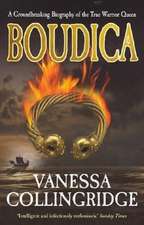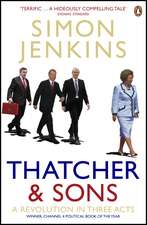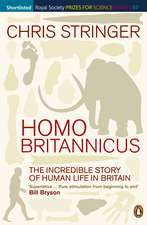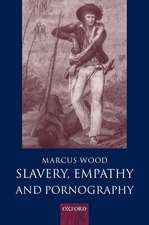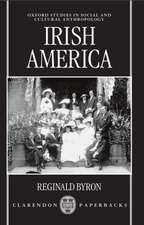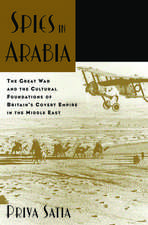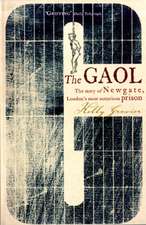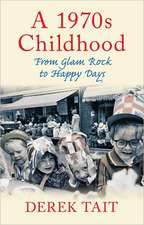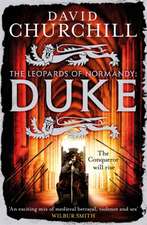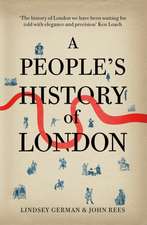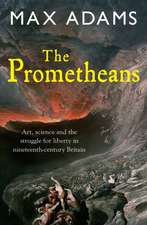Crime Control and Everyday Life in the Victorian City: The Police and the Public
Autor David Churchillen Limba Engleză Hardback – 10 ian 2018
Preț: 588.90 lei
Preț vechi: 783.55 lei
-25% Nou
Puncte Express: 883
Preț estimativ în valută:
112.70€ • 122.38$ • 94.67£
112.70€ • 122.38$ • 94.67£
Carte tipărită la comandă
Livrare economică 11-17 aprilie
Preluare comenzi: 021 569.72.76
Specificații
ISBN-13: 9780198797845
ISBN-10: 0198797842
Pagini: 308
Dimensiuni: 164 x 241 x 25 mm
Greutate: 0.64 kg
Editura: OUP OXFORD
Colecția OUP Oxford
Locul publicării:Oxford, United Kingdom
ISBN-10: 0198797842
Pagini: 308
Dimensiuni: 164 x 241 x 25 mm
Greutate: 0.64 kg
Editura: OUP OXFORD
Colecția OUP Oxford
Locul publicării:Oxford, United Kingdom
Recenzii
[The book} is fluidly and interestingly written, with plenty of colour alongside the more detailed analysis of data. I would urge those interested in the history of policing and crime, in the control of urban space, of everyday life in urban society and of state/social relations, to consult Churchill's study. It is an important book which makes a significant contribution to the history of the Victorian city, and it deserves to be widely read.
I would not hesitate to recommend this book to readers who wish to enjoy a well-written reappraisal of the respective roles of both police and public in attempting to control crime within the Victorian city. Churchill is to be congratulated on a book that will make readers think and possibly reassess their views of both police and public during the Victorian era.
Churchill clearly possesses the instinct and craft of a historian: this is a meticulous and carefully researched study, guided throughout by a steadfast commitment to understanding the richness and complexity of the social world.
no study has investigated Victorian crime control as a shared activity between police and public in this level of detail. This book will quickly be seen as a major new interpretation of Victorian polic-ing, the first truly innovative study in this field for quite some time.
One of the values of the work is the fact that Churchill refuses to be pigeonholed into police history, the history of crime, or social history; instead, he examines both the role of the police and the roles of civilians in tackling criminal activity ... A great strength of the work is Churchill's lively style, including his combination of broad analysis with engaging examples ... This style provides clarity for the reader and also brings to life the process of criminal justice administration and the everyday interactions between the police, victims, and offenders on the streets of Victorian cities.
For Criminologists and sociologists, as well as crime and social historians, these are fundamental considerations, and ones that make this book both a timely and welcome addition to research in this area.
This is an original and readable book . . . it offers a valuable contribution to the question of how we can attempt to understand everyday responses to social problems in the nineteenth-century city.
a substantial and original achievement in criminal justice scholarship.
I would not hesitate to recommend this book to readers who wish to enjoy a well-written reappraisal of the respective roles of both police and public in attempting to control crime within the Victorian city. Churchill is to be congratulated on a book that will make readers think and possibly reassess their views of both police and public during the Victorian era.
Churchill clearly possesses the instinct and craft of a historian: this is a meticulous and carefully researched study, guided throughout by a steadfast commitment to understanding the richness and complexity of the social world.
no study has investigated Victorian crime control as a shared activity between police and public in this level of detail. This book will quickly be seen as a major new interpretation of Victorian polic-ing, the first truly innovative study in this field for quite some time.
One of the values of the work is the fact that Churchill refuses to be pigeonholed into police history, the history of crime, or social history; instead, he examines both the role of the police and the roles of civilians in tackling criminal activity ... A great strength of the work is Churchill's lively style, including his combination of broad analysis with engaging examples ... This style provides clarity for the reader and also brings to life the process of criminal justice administration and the everyday interactions between the police, victims, and offenders on the streets of Victorian cities.
For Criminologists and sociologists, as well as crime and social historians, these are fundamental considerations, and ones that make this book both a timely and welcome addition to research in this area.
This is an original and readable book . . . it offers a valuable contribution to the question of how we can attempt to understand everyday responses to social problems in the nineteenth-century city.
a substantial and original achievement in criminal justice scholarship.
Notă biografică
David Churchill is a Lecturer in Criminal Justice at the University of Leeds. He completed his PhD at The Open University and was Economic History Society Anniversary Research Fellow at the Institute of Historical Research. His research concerns policing, security, and crime control in modern Britain, and he has written several articles on these themes. He also works on urban history and on the uses of historical research in criminology and criminal justice studies. In 2016, he was awarded the Radzinowicz Prize and British Society of Criminology Policing Network Early Career Prize.


